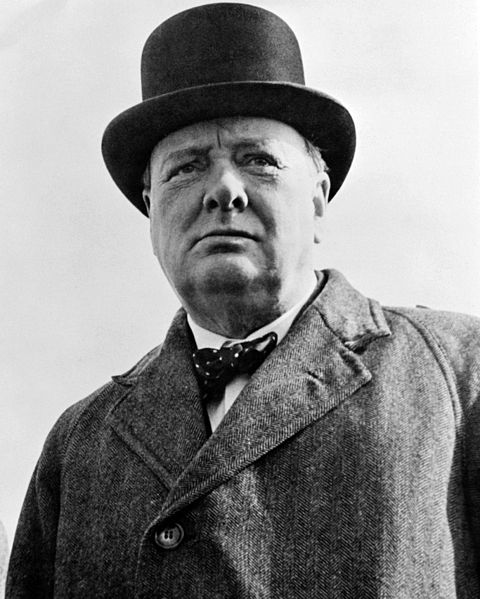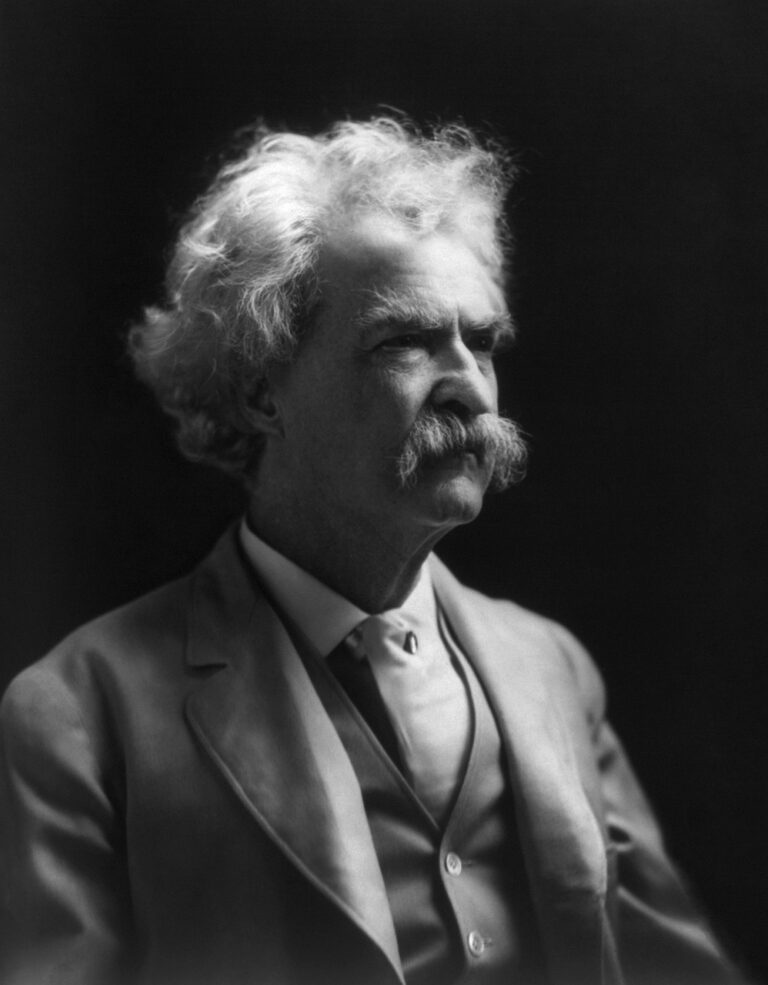Churchill’s Legacy: Timeless Leadership Lessons for the Modern World
 Winston Churchill: A Leadership Icon
Winston Churchill: A Leadership Icon
The annals of history are filled with numerous great leaders who have left an indelible mark on the world with their visionary thinking, courage, and unwavering resolve. One such figure, Sir Winston Churchill, stands as a testament to the power of leadership in times of turmoil and uncertainty. A complex and multifaceted individual, Churchill’s leadership during World War II played a pivotal role in securing victory for the Allies and reshaping the world in its aftermath. Today, his wisdom, resilience, and tenacity continue to inspire leaders across various domains, as his principles and approach to problem-solving hold valuable lessons for those navigating the challenges of the modern world.
In this article, we delve into the life and times of Winston Churchill, exploring the key moments, experiences, and traits that shaped his extraordinary leadership style. We will uncover the stories that encapsulate his unwavering determination, his mastery of communication, and his ability to inspire hope in even the darkest of times. Through these vignettes, we aim to distill the essential elements of Churchill’s leadership and demonstrate how they can be applied in today’s rapidly changing and unpredictable world.
The structure of the article will unfold as follows: We will begin by exploring Churchill’s background and early life, focusing on the experiences that fostered his resilience and shaped his approach to leadership. We will then examine the specific leadership traits that characterized his style, including his courage, communication skills, and strategic thinking. Next, we will discuss key moments from his career, with a particular emphasis on his leadership during World War II and the post-war years. Finally, we will extract lessons from Churchill’s life and experiences that are relevant for contemporary leaders, illustrating how his principles can be adapted to address the challenges faced in the 21st century.
As we embark on this journey through the life of one of history’s most celebrated leaders, it is our hope that readers will gain a deeper understanding of the timeless principles that underpin effective leadership. Through the lens of Winston Churchill’s remarkable accomplishments, we seek to inspire a new generation of leaders to rise above adversity, embrace change, and leave a lasting impact on the world.
Background and Early Life
Sir Winston Leonard Spencer Churchill, born on November 30, 1874, in Blenheim Palace, Oxfordshire, England, was a figure who would come to epitomize courage, determination, and visionary leadership. However, the path that led him to greatness was anything but straightforward. In this section, we explore the formative years of Churchill’s life, delving into the experiences that helped shape his resilience, resolve, and understanding of leadership.
Churchill’s upbringing and family
As the eldest son of Lord Randolph Churchill, a prominent British statesman, and Jennie Jerome, an American socialite, Winston Churchill was born into a world of privilege and political intrigue. His childhood, however, was marked by emotional distance from his parents, who were frequently preoccupied with their own ambitions and social lives. Raised predominantly by his nanny, Elizabeth Anne Everest, young Winston found solace and guidance in her care. This early emotional adversity would serve as a catalyst for his fierce determination and drive to prove himself in both the political and military realms.
Early struggles and resilience
Churchill’s early education was marked by a series of challenges and setbacks. A slow learner, he struggled academically, particularly in subjects such as Latin and mathematics. He also grappled with a speech impediment, which made communication challenging for him. Nevertheless, Churchill refused to let these obstacles define him. Instead, he focused on his strengths, such as history and English, and developed a deep passion for reading and writing. These pursuits would later become instrumental in honing his oratory skills and understanding of the world.
Despite his academic struggles, Churchill’s tenacity and innate leadership qualities shone through during his time at the Royal Military Academy Sandhurst. Graduating with honors, he embarked on a military career that would serve as the foundation for his future leadership roles.
First experiences in leadership roles
Churchill’s early military and political career provided him with invaluable opportunities to develop his leadership skills and forge his unique approach to problem-solving. As a young soldier and war correspondent, he witnessed firsthand the complexities of war and diplomacy in countries such as India, Sudan, and South Africa. These experiences exposed him to diverse cultures and perspectives, enriching his understanding of global affairs and fueling his passion for politics.
In 1900, at the age of 25, Churchill was elected as a Member of Parliament for the Conservative Party. Over the next few years, he would hold various positions in the British government, including Under-Secretary of State for the Colonies, President of the Board of Trade, and First Lord of the Admiralty. These roles allowed him to hone his strategic thinking, negotiation skills, and ability to inspire and rally others around a common cause.
As we reflect on Winston Churchill’s early life, it becomes clear that his upbringing, struggles, and initial forays into leadership were instrumental in shaping the man he would become. His resilience in the face of adversity, his passion for learning, and his experiences on the global stage laid the groundwork for the unwavering resolve and visionary thinking that would define his leadership during World War II and beyond.
Leadership Traits
Winston Churchill’s leadership was characterized by an intricate interplay of traits that contributed to his unique approach to problem-solving, decision-making, and inspiring those around him. In this section, we will explore three key traits that defined his leadership: courage and perseverance in the face of adversity, communication and oratory skills, and vision and strategic thinking.
Courage and perseverance in the face of adversity
Stories from Churchill’s military career
Throughout his life, Churchill demonstrated an unwavering ability to confront challenges head-on, even when the odds seemed insurmountable. His military career was rife with instances where his courage and resolve were put to the test. One such example is his daring escape from a Boer War prison camp in South Africa in 1899. Despite the risks, Churchill planned and executed his escape, traveling over 300 miles to reach safety. This feat showcased not only his bravery but also his resourcefulness and determination in the face of adversity.
The importance of determination and resolve
Churchill’s ability to persevere in the face of adversity was a cornerstone of his leadership philosophy. He believed that unwavering resolve and determination were key to overcoming challenges, both personal and professional. This mindset was exemplified in his famous quote, “Never give in, never give in, never, never, never, never – in nothing, great or small, large or petty – never give in except to convictions of honor and good sense.” By embodying this principle, Churchill inspired his followers to persist even when faced with seemingly insurmountable obstacles.
Communication and oratory skills
The power of Churchill’s speeches
Churchill’s legendary communication skills were instrumental in rallying the British people during World War II. His powerful speeches, imbued with eloquence and emotion, served to inspire hope and determination in the face of immense challenges. The impact of his words, such as the iconic “We shall fight on the beaches” speech, cannot be overstated. His ability to galvanize a nation through the sheer power of his oratory was a testament to his mastery of language and his deep understanding of the human spirit.
Lessons on connecting with and inspiring others
Churchill’s communication skills extended beyond his public speeches. He understood the importance of connecting with people on a personal level, recognizing that empathy and genuine concern for others were essential to effective leadership. By actively listening to the needs and concerns of his constituents, Churchill was able to forge strong relationships and engender trust among those he led. Today’s leaders can learn from his example by cultivating their communication skills, both in public speaking and interpersonal interactions.
Vision and strategic thinking
Churchill’s long-term perspective on world affairs
Churchill’s vision and strategic thinking were hallmarks of his leadership style. He possessed a keen ability to recognize the broader implications of current events and anticipate future challenges. This foresight allowed him to make informed decisions, even in the face of uncertainty. For instance, his early warnings about the rise of Adolf Hitler and the threat of Nazi Germany, though initially dismissed by many, would later prove to be prescient.
Balancing short-term tactics with long-term goals
Churchill understood that effective leadership required balancing short-term tactics with long-term goals. He was adept at making difficult decisions in the present while keeping the future in mind. This ability to focus on both the immediate and the distant future allowed him to navigate complex situations and make strategic choices that would ultimately benefit his nation.
The leadership traits of courage, communication, and vision were integral to Winston Churchill’s success as a leader. These qualities enabled him to face adversity with unwavering resolve, inspire and connect with those around him, and make informed decisions in the face of uncertainty. By examining these traits and the ways in which Churchill embodied them, we can glean valuable insights into the qualities and principles that are essential for effective leadership in the modern world.
As we continue to explore the life and legacy of Winston Churchill, it becomes increasingly clear that his leadership traits hold significant relevance for contemporary leaders. In an era characterized by rapid change and mounting challenges, the qualities of courage, communication, and strategic vision remain as important as ever. By studying and emulating these traits, today’s leaders can cultivate the resilience, adaptability, and foresight necessary to navigate the complexities of the 21st century and inspire their followers to achieve lasting success.
By delving deeper into the life and leadership of Winston Churchill, we can better understand the enduring principles that underpin effective leadership. By embracing and applying these lessons, contemporary leaders can rise to the challenges of their time, foster a sense of unity and purpose among their followers, and ultimately, leave a lasting impact on the world.
Key Leadership Moments
Winston Churchill’s life was punctuated by numerous pivotal moments that showcased his exceptional leadership abilities. In this section, we will examine some of these key events, with a focus on his leadership during World War II and the post-war years. We will also explore his reflections on success and failure, shedding light on how these experiences shaped his outlook on leadership.
World War II
Becoming Prime Minister during a time of crisis
In May 1940, Winston Churchill became the Prime Minister of the United Kingdom during one of the most tumultuous periods in modern history. With Europe engulfed in war and Britain facing the growing threat of a Nazi invasion, Churchill’s appointment to the helm of the British government was a testament to his reputation as a decisive and tenacious leader. Faced with seemingly insurmountable odds, he rose to the challenge, vowing to lead the nation to victory at any cost.
Building alliances and fostering cooperation
One of Churchill’s most significant accomplishments during World War II was his ability to forge and maintain crucial alliances, particularly with the United States and the Soviet Union. Recognizing the importance of cooperation in the face of a common enemy, he worked tirelessly to secure the support of these powerful nations. His close relationship with President Franklin D. Roosevelt was instrumental in securing American aid through the Lend-Lease program, while his diplomatic efforts with Joseph Stalin helped to solidify the Eastern Front against Nazi Germany.
Maintaining morale and hope during the darkest hours
Churchill’s leadership during the Battle of Britain and the Blitz was pivotal in sustaining the morale of the British people. His unwavering resolve, combined with his oratory prowess, inspired hope and resilience in the face of relentless bombings and the prospect of invasion. By instilling a sense of unity and determination, Churchill played a crucial role in bolstering the nation’s spirit during its darkest hours.
Post-War Years
Continuing influence on global politics
Though Churchill’s time as Prime Minister came to an end in 1945, his influence on global politics persisted. He remained an active member of Parliament and continued to shape the course of world events through his advocacy for democracy, freedom, and the rule of law. His famous “Iron Curtain” speech in 1946, which warned of the growing threat posed by the Soviet Union, played a significant role in shaping the early years of the Cold War.
Advocating for peace and unity in a changing world
In the post-war era, Churchill championed the cause of European unity and international cooperation. He was an early proponent of the European Union, envisioning a united and peaceful Europe that would stand as a bulwark against totalitarianism and war. His vision for a more interconnected world, based on shared values and common goals, remains a powerful and enduring legacy.
Reflections on success and failure
Learning from past mistakes
Throughout his life, Churchill experienced both remarkable successes and crushing failures. His ability to learn from these experiences, adapting and refining his approach to leadership, was a hallmark of his character. By acknowledging his mistakes and embracing the lessons they offered, he was able to grow as a leader and a human being.
Embracing challenges as opportunities for growth
Churchill viewed challenges not as insurmountable obstacles but as opportunities for growth and self-improvement. He believed that it was through overcoming adversity that individuals and societies were able to forge their character and achieve greatness. This mindset was a driving force behind his unwavering commitment to his nation and his determination to prevail in the face of seemingly insurmountable odds.
In examining these key moments from Winston Churchill’s life, we gain a deeper appreciation for the qualities that defined his leadership and the impact he had on the world. His ability to navigate complex situations, build and maintain crucial alliances, and inspire hope during times of crisis are emblematic of his enduring legacy. Furthermore, his reflections on success and failure offer valuable insights for contemporary leaders, illustrating the importance of learning from past experiences and embracing challenges as opportunities for growth. By studying Churchill’s leadership in these pivotal moments, we can better understand the qualities and principles that underpin effective leadership, paving the way for future generations to learn from his example and apply these lessons to their own unique challenges.
Lessons for Contemporary Leaders
As we reflect on the life and leadership of Winston Churchill, it becomes clear that the principles he embodied and the experiences he navigated hold significant value for contemporary leaders. In this section, we will distill key lessons from Churchill’s life and career, illustrating how his approach to leadership can be adapted to address the unique challenges faced by leaders in the 21st century.
Embracing adaptability and learning from experience
Adapting to change
In an ever-evolving world, adaptability is a crucial skill for modern leaders. Churchill demonstrated an exceptional ability to adjust his approach based on the circumstances at hand, learning from past mistakes and incorporating new information into his decision-making process. By fostering a growth mindset and remaining open to change, contemporary leaders can navigate uncertainty and lead their organizations through complex situations.
The importance of lifelong learning
Churchill’s commitment to continuous learning and intellectual growth is a testament to the value of being a lifelong learner. In an age of rapid technological advancements and shifting geopolitical landscapes, it is essential for leaders to remain informed and engaged with the world around them. By investing in their own personal and professional development, contemporary leaders can ensure that they are well-equipped to address the challenges of the modern era.
Cultivating emotional intelligence and empathy
Connecting with others on a personal level
Churchill’s ability to forge strong connections with others, both as a public figure and in interpersonal relationships, highlights the importance of emotional intelligence in leadership. By genuinely empathizing with the needs and concerns of their followers, contemporary leaders can build trust and create an environment in which individuals feel valued and supported.
The power of inspirational communication
As we have seen through Churchill’s speeches and writings, the ability to communicate effectively is an invaluable asset for any leader. By honing their communication skills and understanding the power of storytelling, contemporary leaders can inspire their followers and convey their vision in a way that resonates with a diverse audience.
Balancing pragmatism and vision
Making difficult decisions
Churchill’s ability to make tough decisions in the face of adversity serves as a powerful reminder of the importance of pragmatism in leadership. Contemporary leaders must be prepared to make difficult choices, even when the path ahead is unclear or unpopular. By maintaining a clear-eyed perspective and considering the long-term implications of their actions, leaders can make informed decisions that serve the best interests of their organizations and constituents.
Fostering a sense of purpose and direction
Churchill’s unwavering vision and strategic thinking were instrumental in guiding his nation through the tumultuous years of World War II. In today’s fast-paced world, it is essential for leaders to have a clear sense of purpose and direction, as well as the ability to communicate this vision to their followers. By cultivating a strong sense of mission and guiding their organizations toward a shared goal, contemporary leaders can foster unity, resilience, and determination in the face of adversity.
The life and leadership of Winston Churchill offer a wealth of lessons for contemporary leaders, demonstrating the enduring value of courage, adaptability, empathy, and vision. By examining his experiences and reflecting on the principles that underpinned his approach to leadership, we can gain valuable insights into the qualities that are essential for success in today’s rapidly changing and unpredictable world. Armed with this knowledge, the leaders of the 21st century can rise to the challenge of guiding their organizations through uncertainty, fostering a sense of unity and purpose, and ultimately, leaving a lasting impact on the world.
Churchill’s Leadership Legacy and Its Impact on Future Generations
As we reflect on the leadership lessons and stories of Winston Churchill, it is essential to consider the impact of his legacy on future generations. Churchill’s approach to leadership, his principles, and his unwavering resolve continue to inspire and inform leaders from diverse backgrounds and fields. In this section, we will explore the ways in which Churchill’s legacy can serve as a foundation for developing effective and resilient leaders in the 21st century and beyond.
Inspiring courage and resilience in future leaders
Fostering a culture of perseverance
One of the most enduring aspects of Churchill’s legacy is his emphasis on courage and resilience in the face of adversity. By promoting a culture of perseverance and determination, contemporary leaders can help to instill these values in their followers, equipping them with the mindset necessary to overcome challenges and achieve success.
The power of role models
Churchill’s life and achievements serve as a powerful reminder of what can be accomplished when individuals possess the courage to confront seemingly insurmountable odds. By celebrating and learning from role models like Churchill, future generations can be inspired to pursue their own goals with unwavering resolve and tenacity, regardless of the obstacles they may face along the way.
Nurturing communication skills and emotional intelligence
Developing effective communicators
As we have seen through Churchill’s speeches and writings, the ability to communicate effectively is an essential component of successful leadership. By emphasizing the importance of strong communication skills and providing opportunities for individuals to develop their oratory and interpersonal abilities, contemporary leaders can help to foster a new generation of effective and inspiring communicators.
Cultivating empathy and understanding
Churchill’s ability to empathize with the needs and concerns of his followers highlights the importance of emotional intelligence in leadership. By encouraging individuals to develop their emotional intelligence and fostering a culture of empathy and understanding, contemporary leaders can help to create more compassionate and effective leaders for the future.
Encouraging strategic thinking and visionary leadership
Fostering long-term thinking
Churchill’s visionary approach to leadership and his ability to anticipate future challenges underscore the value of strategic thinking in the modern era. By promoting long-term thinking and encouraging individuals to consider the broader implications of their actions, contemporary leaders can help to develop the next generation of strategic and visionary leaders.
Empowering future leaders to think big
Churchill’s unwavering belief in the potential of his nation and its people serves as a powerful example of what can be achieved when leaders possess a bold and ambitious vision. By empowering future leaders to think big and pursue their dreams with confidence and determination, contemporary leaders can help to create a world in which individuals are inspired to achieve their full potential.
The legacy of Winston Churchill continues to exert a profound influence on the leaders of today and tomorrow. By embracing the principles and lessons gleaned from his life and career, contemporary leaders can help to shape the next generation of courageous, compassionate, and visionary leaders who are equipped to navigate the challenges of the 21st century and beyond. Through the ongoing study and appreciation of Churchill’s leadership, we can ensure that his legacy endures, inspiring and informing the leaders of the future for generations to come.
Embracing Churchill’s Principles for a Brighter Future
In conclusion, the life and leadership of Winston Churchill offer a rich tapestry of lessons, stories, and insights that are not only historically significant but also deeply relevant to contemporary leaders and future generations. Churchill’s unwavering courage, strategic vision, exceptional communication skills, and resilience in the face of adversity have made him an enduring symbol of effective leadership.
Throughout this article, we have explored the key leadership traits and pivotal moments that defined Churchill’s storied career. By delving into his experiences, we have gained valuable insights into the qualities that underpin effective leadership, such as adaptability, empathy, and long-term strategic thinking. Moreover, we have discussed how contemporary leaders can apply these principles to address the unique challenges faced in the 21st century, fostering a sense of unity and purpose in an increasingly complex and interconnected world.
The legacy of Winston Churchill serves as a powerful reminder of what can be achieved when individuals possess the courage to confront seemingly insurmountable odds, the vision to see beyond immediate obstacles, and the resilience to persevere in the face of adversity. As we continue to navigate the challenges and uncertainties of the modern era, the lessons gleaned from Churchill’s life and career can serve as a beacon of inspiration and guidance for contemporary leaders and those who will shape the future.
By embracing the principles and lessons embodied by Churchill, we can help to create a world in which individuals are inspired to achieve their full potential, organizations are guided by visionary and compassionate leaders, and societies are united in their pursuit of a brighter and more prosperous future. Ultimately, the study and appreciation of Winston Churchill’s leadership can serve as a powerful catalyst for growth and transformation, empowering future generations to rise to the challenges of their time and leave a lasting impact on the world.





